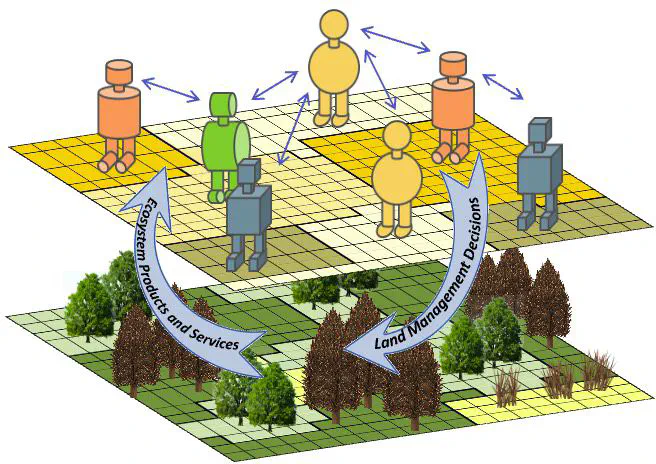DISES: Co-produced modeling of socio-environmental dynamics of financialized forestlands and alternative future scenarios

Abstract
Financial firms have taken ownership of tens of millions of hectares of commercial forestlands in the United States in recent decades. However, the governance, community access, and ecological implications of this change remain largely unknown. This project will advance scholarship on timberlands in the United States as integrated socio-environmental systems, understand what drives decision-making for finacialized lands, the social and environmental implications of these landscape changes, and inform policy deliberations regarding their future ownership and management.
This project will develop spatial and causal models to represent the socio-environmental feedbacks and consequences of three decades of forest financialization, then use these models to co-produce future landscape scenarios for informing policy and governance processes. Specifically:
- Analyze the socio-environmental implications arising from the industrial timberland financialization process in terms of landscape pattern changes, harvest patterns, carbon storage, and access to forest benefits by tribal and non-tribal forest users.
- Identify the actors, processes, and variables that act as leverage points in driving changes in patterns of carbon storage, forest conversion, and community benefits within timberlands as socio-environmental systems.
- Develop and simulate future governance and management scenarios for these lands that evaluate their carbon, ecological, and social implications and tradeoffs through a collaborative co-production process with key stakeholders.
Our collaborators include scientists and researchers in the University of Maine, the University of Georgia, and Google LLC.